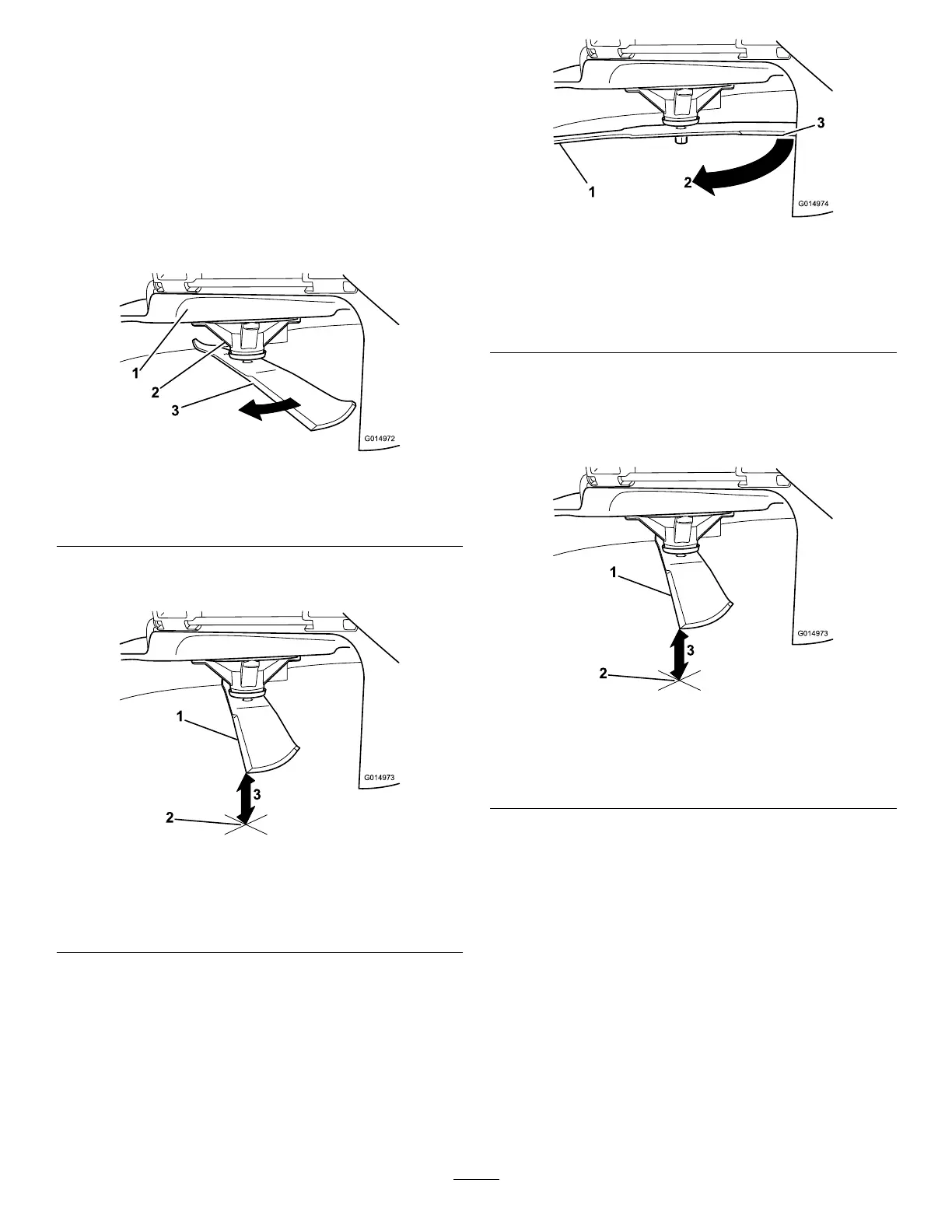Checking for Bent Blades
Note: The machine must be on a level surface for
the following procedure.
1. Raise the mower deck to the highest
height-of-cut position.
2. While wearing thickly padded gloves, or other
adequate hand protection, slowly rotate the
blade into a position that allows you to measure
the distance between the cutting edge and the
level surface the machine is on ( Figure 1 14 ).
g014972
Figure 1 14
1. Deck 3. Blade
2. Spindle housing
3. Measure from the tip of the blade to the at
surface ( Figure 1 15 ).
g014973
Figure 1 15
1. Blade (in position for measuring)
2. Level surface
3. Measured distance between blade and the surface (A)
4. Rotate the same blade 180 degrees so that
the opposing cutting edge is now in the same
position ( Figure 1 16 ).
g014974
Figure 1 16
1. Blade (side previously measured)
2. Measurement (position used previously)
3. Opposing side of blade being moved into measurement
position
5. Measure from the tip of the blade to the at
surface ( Figure 1 17 ).
Note: The variance should be no more than
3 mm (1/8 inch).
g014973
Figure 1 17
1. Opposite blade edge (in position for measuring)
2. Level surface
3. Second measured distance between blade and surface (B)
A. If the dif ference between A and B is greater
than 3 mm (1/8 inch), replace the blade with
a new blade; refer to Removing the Blades
( page 78 ) and Installing the Blades ( page
78 ) .
Note: If a bent blade is replaced with a
new blade, and the dimension obtained
continues to exceed 3 mm (1/8 inch), the
blade spindle could be bent. Contact an
Authorized Service Dealer for service.
B. If the variance is within constraints, move to
the next blade.
6. Repeat this procedure on each blade.
77
